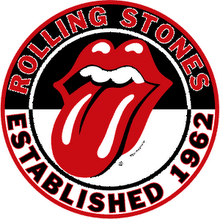Un extrait d'un site consacré aux Byrds... (On est en 1968)
In London, Mick Jagger and Keith Richards, who knew McGuinn and Hillman from earlier tours together, entertained the band. Parsons was quite taken with their hosts, and privately spoke to them about the tour of South Africa scheduled for July. Richards remembers talking to Parsons about apartheid and telling him bluntly, "Well, put it this way: We wouldn't go."
In July, the Byrds returned to England for a charity concert at the Royal Albert Hall, after which they were to leave for South Africa. The night before their departure, Parsons announced he would not be going along because of South Africa's racial policies. In response, McGuinn and Hillman fired him from the band.
None of his friends or associates believed that anti-apartheid sentiment was the real reason Parsons quit, perhaps because of his history of stretching the truth. Hillman, who was furious with Parsons for leaving the band in such a jam, believed that he just wanted to hang out with the Rolling Stones. Byrds roadie Carlos Bernal, who subbed for Parsons on the South African tour, thought that Parsons quit the band because "he couldn't have things just exactly how he wanted them.... He wanted a steel guitar to do a lot of his tunes. He wanted a lot of things the band wasn't prepared to jump into overnight."
The most charitable theory was that this was an early manifestation of his fear of flying, triggered by the thought of the long flight from London to Johannesburg via the Canary Islands. Hillman also thinks this may have been a contributing factor.
In any event, Parsons retreated to Redlands, the country estate of Keith Richards. There the two got to know each other, while Parsons enthused to Richards and Jagger about his favorite country records.
After the Byrds:
Back home, Nancy Ross had recently given birth to a daughter, Polly Parsons. Parsons had planned a large wedding -- a Hank Williams-style media event -- and commissioned a $1,000 wedding dress from Nudie's Rodeo Tailors. Despite, or perhaps because of, the birth of their child, Parsons and Ross had drifted apart. The dress was never used, though it was immortalized years later in the Parsons song "$1,000 Wedding."
In the late summer of '68, Richards and Parsons rejoined Jagger in Los Angeles, where the Rolling Stones were mixing Beggars' Banquet (Abkco, 1968). Jagger had hired a charismatic ex-con named Phil Kaufman to be his "executive nanny." Kaufman, who would become a close friend of Parsons before long, remembers him giving "country music lessons" to the curious Stones during their '68 visit:
"...Gram was teaching the Rolling Stones country music.... Quite often we'd just sit around the house -- Gram, Mick, Keith and I. They had been to Ace Records and bought every country album they could find: George Jones, Merle Haggard, Dave Dudley, Ernest Tubb -- you name it. Gram would say, 'Here is an example of this,' and he'd tell me which record he wanted and I'd play the record. They'd listen to it, tap their toes to it, listen to the chords and then Gram had me play George Jones, etc... That was what Gram was doing. I recorded Gram and Keith singing together, but sadly those tapes are long gone."
Kaufman disputes assertions that Parsons was a "Rolling Stones groupie": "Nothing could be further from the truth. Gram was one of the only guys in the world who hung out with famous people like the Stones and who carried his own weight, i.e., he paid his own way. If anything, Keith was the 'groupie' of Gram.... They wanted to learn country music, and Gram had it."
Before long, Richards and Jagger returned home, and Parsons went back to organizing the long-haired country band he had been planning.

